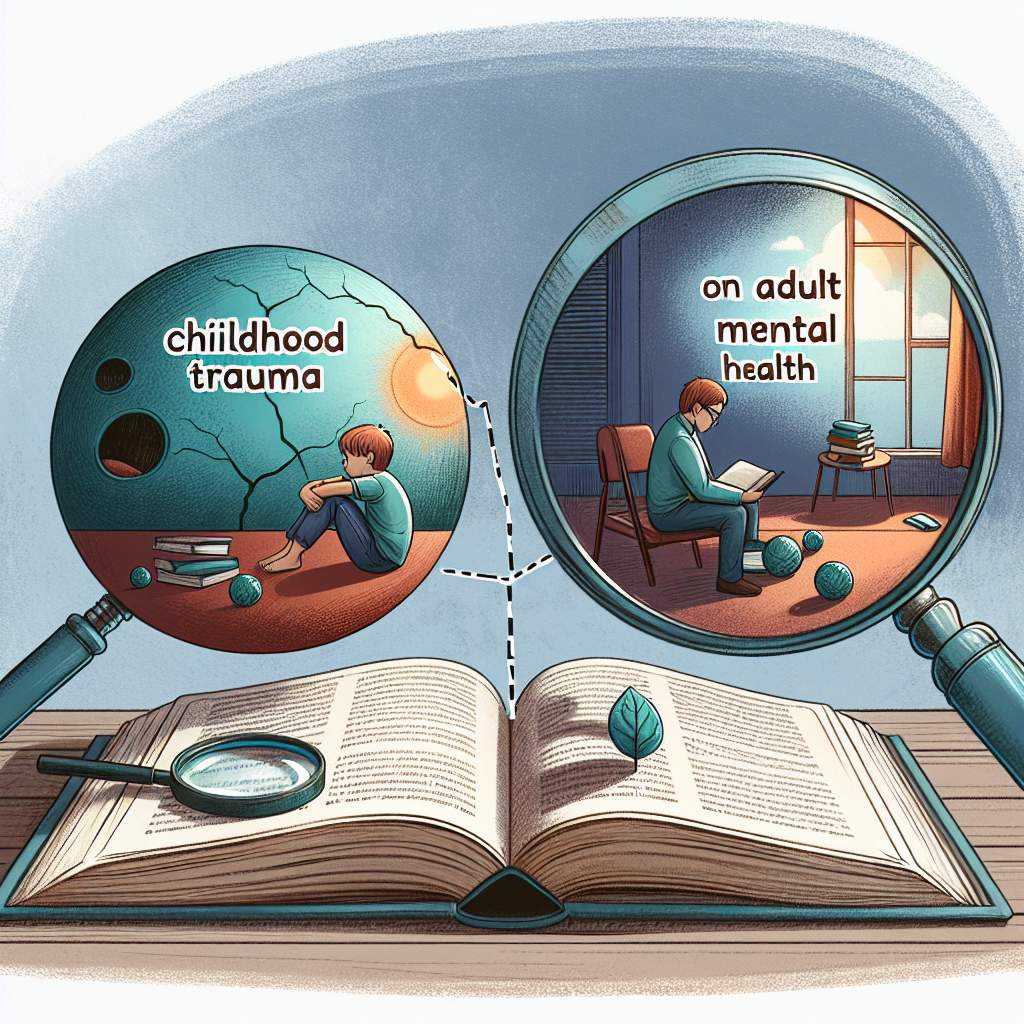Childhood trauma is a serious issue that affects millions of people around the world. It can have a profound impact on a person’s mental health and well-being, leading to long-lasting psychological issues that can persist into adulthood. In recent years, researchers have been studying the link between childhood trauma and adult mental health, seeking to understand the ways in which traumatic experiences in childhood can shape a person’s mental health outcomes later in life.
One such study that has made significant strides in this area is the research conducted by Dr. Sarah Johnson, a psychologist at the University of California, Berkeley. Dr. Johnson’s study, titled “The Impact of Childhood Trauma on Adult Mental Health” sought to investigate the relationship between childhood trauma and mental health outcomes in adulthood. The study involved a comprehensive review of existing research on the topic, as well as interviews with individuals who had experienced childhood trauma.
Dr. Johnson’s research found that childhood trauma can have a profound impact on a person’s mental health in adulthood. Individuals who experienced trauma in childhood were more likely to suffer from a range of mental health issues, including anxiety, depression, post-traumatic stress disorder, and substance abuse. The study also found that individuals who experienced childhood trauma were more likely to have difficulty forming healthy relationships, maintaining employment, and functioning in everyday life.
One of the key findings of Dr. Johnson’s study was that the effects of childhood trauma on mental health are not always immediate. While some individuals may experience symptoms of trauma in childhood, others may not develop mental health issues until later in life. This underscores the importance of early intervention and support for individuals who have experienced childhood trauma, as it can help prevent long-term mental health issues from developing.
Dr. Johnson’s research also highlighted the importance of understanding the different types of childhood trauma and their impact on mental health. The study found that individuals who experienced physical or sexual abuse in childhood were more likely to suffer from severe mental health issues in adulthood, compared to those who experienced other types of trauma such as neglect or emotional abuse. This underscores the need for tailored treatment approaches that address the specific needs of individuals who have experienced different types of childhood trauma.
In addition to the impact on mental health, childhood trauma can also have physical health consequences. Research has shown that individuals who experienced childhood trauma are at a higher risk for developing chronic health conditions such as heart disease, diabetes, and obesity. This highlights the importance of a holistic approach to addressing the effects of childhood trauma, which includes both mental health and physical health interventions.
Overall, Dr. Johnson’s research contributes to a growing body of evidence that highlights the long-lasting impact of childhood trauma on adult mental health. By understanding the ways in which childhood trauma can shape mental health outcomes, researchers, policymakers, and mental health professionals can work together to develop more effective interventions and support systems for individuals who have experienced trauma in childhood.
FAQs:
Q: Can childhood trauma be fully overcome in adulthood?
A: While childhood trauma can have long-lasting effects on mental health, it is possible to overcome its impact through therapy, support, and healthy coping mechanisms. With the right interventions, individuals can learn to manage their symptoms and build resilience in the face of their past trauma.
Q: What are some effective treatments for adults who have experienced childhood trauma?
A: Therapies such as cognitive-behavioral therapy, eye movement desensitization and reprocessing (EMDR), and dialectical behavior therapy have been shown to be effective in treating adults who have experienced childhood trauma. Support groups, mindfulness practices, and medication can also be helpful in managing symptoms.
Q: How can I support a loved one who has experienced childhood trauma?
A: The best way to support a loved one who has experienced childhood trauma is to listen, validate their feelings, and offer them emotional support. Encourage them to seek professional help and connect them with resources in their community. Remember to practice patience and compassion, as healing from childhood trauma is a journey that takes time and effort.




Leave A Comment